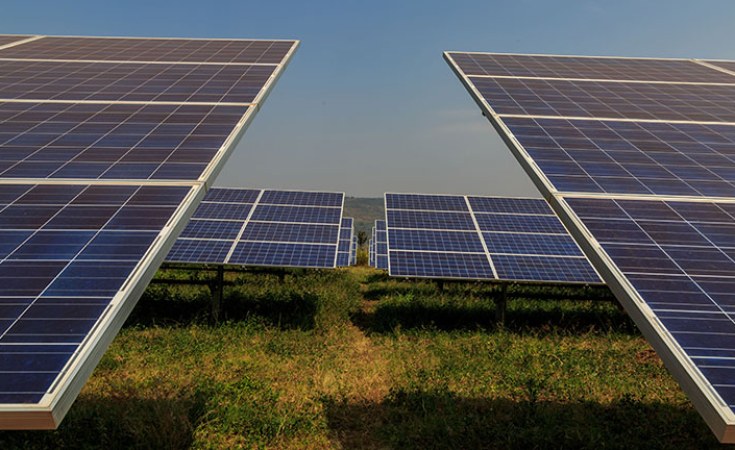Africa has the potential to produce €1 trillion worth of green hydrogen a year by 2035, allowing it to export the fuel and boost local industry, a study backed by the European Investment Bank (EIB) has revealed.
According to the study carried out in collaboration with the African Union (AU) and the International Solar Alliance, by harnessing the world's best solar energy resource, a number of countries on the continent could produce the much-needed fuel.
The product is made by splitting water using renewable energy, at a cost of less than €2 a kilogramme by 2030, the EIB and its partners said.
Demand for the clean-burning fuel is surging as the world looks for alternatives to climate-warming fossil fuels and as Europe seeks to lessen its dependence on Russian natural gas.
Supplies of natural have proved unreliable due to the political tension created by Russia's invasion of Ukraine.
The researchers listed Egypt, Morocco and Mauritania, Namibia and South Africa as major production hubs, but said that Nigeria also has huge potential.
It stated that while plans to produce the fuel are most advanced in those nations, a number of other countries ranging from Algeria to Nigeria and Mozambique have the capacity to start production.
Egypt would be the biggest producer at 20 million tonnes per annum, second would be the Southern African hub with 17.5 million tonnes while Morocco and Mauritania could together produce 12.5 million tonnes.
About half of that, equivalent to 15 per cent of Europe's gas needs, could be available for export, the researchers said.
"Harnessing Africa's solar energy to produce 50 million tons of green hydrogen a year by 2035 can help secure global energy supply, create jobs, decarbonise heavy industry, enhance global competitiveness and transform access to clean water and sustainable energy," the added.
The "Africa's Extraordinary Green Hydrogen Potential" report represents the first detailed research of the feasible development of green hydrogen across the continent.
"Africa has the best solar energy in the world and transforming solar power into green hydrogen can strengthen energy security, cut emissions and pollution and decarbonise industry and transport.
"Africa has the best renewable energy in the world and scaling up production of green hydrogen can transform access to low-cost electricity and clean water. Unlocking Africa's green hydrogen potential will require close cooperation between public, private and financial partners.
"The new Africa's Extraordinary Green Hydrogen Potential study outlines what can be achieved and what needs to be done. The EIB is pleased to work with African and international partners to enable large scale green hydrogen to become a reality," said the Vice President of the EIB, Ambroise Fayolle.
According to the Director General, International Solar Alliance, Dr Ajay Mathur, solar technology has provided the cheapest electricity.
He added that it will cost below €2 per kg in several African countries by 2030, much lower than the current mass assumption of €5 and a stark contrast to the $60-70 paid for an oil barrel.
"Thanks to this low-cost electricity and decreasing electrolyser costs, the next step is providing access to a clean fuel, cheaper than all the current fossil fuels. It will enable us to decarbonise the power sector and most hard-to-abate sectors - fertilisers, steel manufacturing, and refineries," the group noted.
The comprehensive analysis carried out in recent weeks by international consultancy CVA suggests that large scale green hydrogen investment can accelerate decarbonisation by enabling large scale African energy users, such as fertiliser and steel producers, to use green hydrogen.


